#exile and pride
Text
When people stumble over their pronouns, stammer, blush, or apologize in embarrassment, I often think of Riki Anne Wilchins' description of her friend Holly Boswell:
"Holly is a delicate Southern belle of long acquaintance ....S/he has tender features, long, wavy blonde hair, a soft Carolina accent, a delicate feminine bosom, and no interest in surgery. Holly lives as an open transgendered mother of two in Asheville, North Carolina. Her comforting advice to confused citizens struggling with whether to use Sir or Madam is, 'Don't give it a second thought. You don't have a pronoun yet for me.’” ...
...[T]o answer the homophobes becomes easy, those folks who want to dehumanize, erase, make invisible the lives of butch dykes and nellie fags. We shrug. We laugh. We tell them: your definitions of woman and man suck. We tell them: your binary stinks.
We say: here we are in all our glory — male, female, intersex, trans, butch, nellie, studly, femme, king, androgynous, queen, some of us carving out new ways of being women, others of us new ways of being men, and still others new ways of being something else entirely. You don't have pronouns yet for us.
- Eli Clare in Exile & Pride: Disability, Queerness and Liberation (1999)
950 notes
·
View notes
Text
Pride works in direct opposition to internalized oppression. The latter provides fertile ground for shame, denial, self-hatred, and fear. The former encourages anger, strength, and joy. To transform self-hatred into pride is a fundamental act of resistance. In many communities, language becomes one of the arenas for this transformation. Sometimes the words of hatred and violence can be neutralized or even turned into words of pride. To stare down the bully calling cripple, the basher swinging the word queer like a baseball bat, to say "Yeah, you're right. I'm queer. I'm a crip. So what?" undercuts the power of those who want us dead."
Exile and Pride - Eli Clare, 1999
76 notes
·
View notes
Text
Exile and Pride: Disability, Queerness and Liberation by Eli Clare
goodreads

First published in 1999, Exile & Pride established Eli Clare as one of the leading writers on the intersections of queerness and disability. With this critical tenth-anniversary edition, the groundbreaking publication secures its position as essential to the history of queer and disability politics, and, through significant new material that boldly interrogates and advances the original text, to its future as well. Clare’s writing on his experiences as a genderqueer activist/writer with cerebral palsy permanently changed the landscape of disability politics and queer liberation, and yet Exile & Pride is much too great in scope to be defined by even these two issues. Instead it offers an intersectional framework for understanding how our bodies actually experience the politics of oppression, power, and resistance. At the heart of Clare’s exploration of environmental destruction, white working-class identity, queer community, disabled sexuality, childhood sexual abuse, coalition politics, and his own gender transition is a call for social justice movements that are truly accessible for everyone.
Blending prose and theory, personal experience and political debate, anger and compassion, Exile & Pride provides a window into a world where our whole selves in all their complexity can be loved and accepted.
Mod opinion: I‘d heard of this book before, but I hadn‘t really read the description before and now that I have I‘m really, really excited to read it someday!
#exile and pride#eli clare#trans books#trans lit#trans literature#lgbt books#lgbt literature#lgbt lit#nonfiction#memoir#disability studies#own voices#genderqueer#nonbinary#polls#to read
21 notes
·
View notes
Text
An excerpt from Eli Clare (1999) exploring the language used against and used by disabled & queer folk. TW for the r word.
_
"Handicapped, disabled, cripple, gimp, retard, differently abled. I
understand my relationship to each of these words.
I scoff at handicapped, a word I grew up believing my parents had invented specifically to describe me, my parents who were deeply ashamed of my cerebral palsy and desperately wanted to find a cure.
I use the word disabled as an adjective to name what this ableist world does to us crips and gimps.
Cripple makes me flinch; it too often accompanied the sticks and stones on my grade school playground, but I love crip humor, the audacity of turning cripple into a word of pride.
Gimp sings a friendly song, full of irony and understanding. Retard on the other hand draws blood every time, a sharp, sharp knife.
In the world as it should be, maybe disabled people would be differently abled: a world where Braille and audio-recorded editions of books and magazines were a matter of course, and hearing people
signed ASL; a world where schools were fully integrated, health
care, free and unrationed; a world where universal access meant
exactly that; a world where disabled people were not locked up at
home or in nursing homes, relegated to sheltered employment and
paid sweatshop wages. But, in the world as it is, differently abled,
physically challenged tell a wishful lie.
...
Queer, like cripple, is an ironic and serious word I use to de-
scribe myself and others in my communities. Queer speaks volumes
about who I am, my life as a dyke, my relationship to the dominant culture. Because of when I came out-more than a decade after the Stonewall Rebellion-and where-into a highly politicized urban dyke community-queer has always been easy for me. I adore its defiant external edge, its comfortable internal truth. Queer belongs to me. So does cripple for many of the same reasons.
Queer and cripple are cousins: words to shock, words to infuse with
pride and self-love, words to resist internalized hatred, words to
help forge a politics. They have been gladly chosen — queer by many
gay, lesbian, bi, and trans peoples, cripple, or crip, by many disabled
people. ..."
- Eli Clare in Exile and Pride: Disability, Queerness, and Liberation (1999)
#r slur#i debated censoring that word but it'll be easier for people who blacklist it if i don't.#also just as much as it isn't my word to reclaim i also don't think it's mine to censor when used by someone who's had it used against them#exile and pride#words words word#language#reclaiming words#disability#queerness#eli clare#quote tag
31 notes
·
View notes
Text

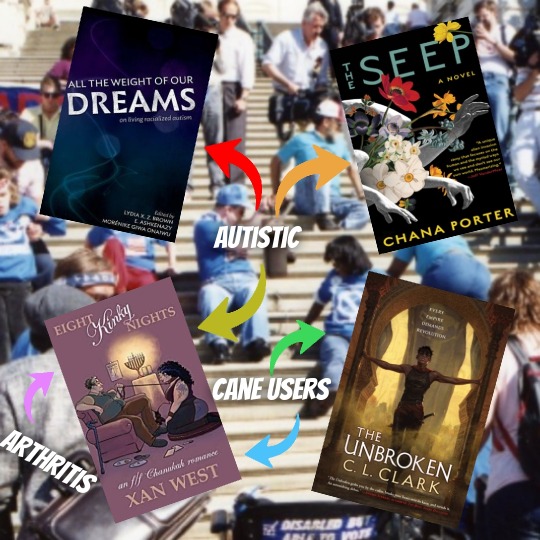
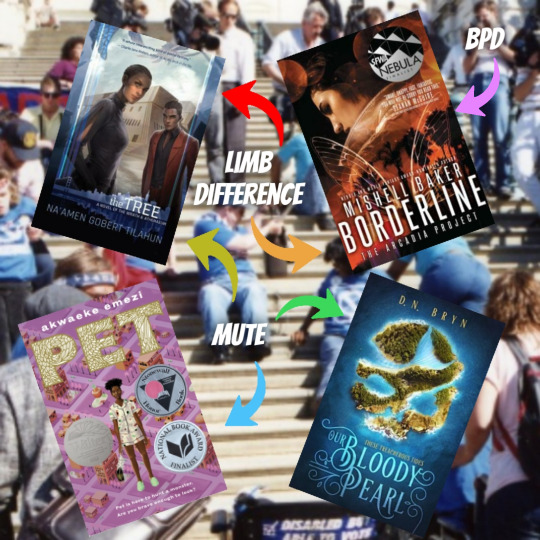

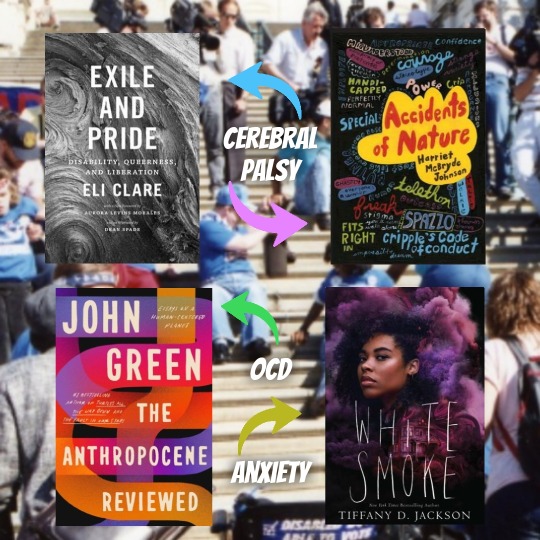
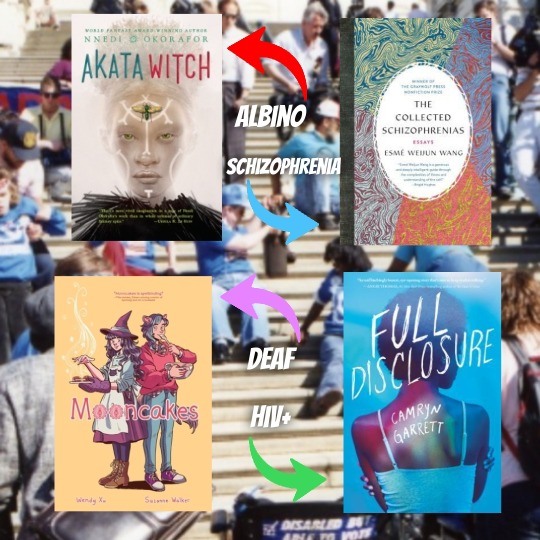
Another Instagram crosspost! This time for Disability Pride Month!
Note: The Tree is a sequel, but the MC sustains the injuries that make her disabled in book one
[Image: several graphics edited with a picture of The Capitol Crawl as the background. The first image has text reading "Favorite Disability Books."
The next image shows four books- All the Weight of Our Dreams: On Living with Racialized Autism ed by Lydia XZ Brown, E Ashkenazy, and Morénike Giwa, The Seep by Chana Porter, Eight Kinky Nights by Xan West, and The Unbroken by CL Clark. There is also text with colorful arrows pointing to the books. The label "autistic" points to All the Weight of Our Dreams, The Seep, and Eight Kinky Nights. The label "cane users" points to Eight Kinky Nights and The Unbroken, and the label "arthritis" points to Eight Kinky Nights.
The next image has four books- The Tree by Na'amen Gobert Tilahun, Borderline by Mishell Baker, Pet by Akwaeke Emezi, and Our Bloody Pearl by DN Bryn. This image also contains labels and arrows. "Limb difference" points to The Tree and Borderline. "Mute" points to The Tree, Pet, and Our Bloody Pearl. "BPD" points to Borderline.
The next image has two books. Disability Visibility: First Person Stories from the Twenty-First Century ed by Alice Wong is labeled "collected works." Care Work: Dreaming Disability Justice by Leah Lakshmi Piepzna-Samarasinha is labeled "no focus on a specific disability; about mutual aid."
The next image has four books- Exile and Pride: Disability, Queerness, and Liberation by Eli Clare, Accidents of Nature by Harriet McBryde Johnson, The Anthropocene Reviewed by John Green, and White Smoke by Tiffany D Jackson- and more colorful arrows. "Cerebral palsy" points to both Exile and Pride and Accidents of Nature. "OCD" points to The Anthropocene Reviewed, and "anxiety" points to White Smoke.
The last image features four books, each with one label pointing to it. Akata Witch by Nnedi Okorafor is labeled "albino." The Collected Schizophrenias by Esmé Weijun Wang is labeled "schizophrenia." Mooncakes by Wendy Xu and Suzanne Walker is labeled "Deaf." Full Disclosure by Camryn Garrett is labeled "HIV+" End.]
#bookblr#all the weight of our dreams: on living with racialized autism#the seep#eight kinky nights#wrath & athenaeum trilogy#arcadia project trilogy#the unbroken cl clark#pet akwaeke emezi#our bloody pearl#disability visibility#care work#exile and pride#accidents of nature#the anthropocene reviewed#white smoke#akata witch#the collected schizophrenias#mooncakes#full disclosure
108 notes
·
View notes
Text



When I got this copy of Exile and Pride from the library there were rolling papers tucked in the back (mood) so I returned it today with some of mine tucked in. I hope the next reader also finds some catharsis here too.
1 note
·
View note
Text
Both witness and pride strengthen identity, foster resistance, cultivate subversion. People who have lived in shame and isolation need all the pride we can muster, not to mire ourselves in a narrowly defined identity politics, but to sustain broad-based rebellion. And likewise, we need a witness to all our histories, both collective and personal. Yet we also need to remember that witness and pride are not the same. Witness pairs grief and rage with remembrance. Pride pairs joy with a determination to be visible. Witness demands primary adherence to and respect for history. Pride uses history as one of its many tools. Sometimes witness and pride work in concert, other times not. We cannot afford to confuse, merge, blur the two.
Eli Clare, Exile and Pride: Disability, Queerness, and Liberation
0 notes
Text
i finally made some pride themed stickers for the comic!! they look so good in person waah.. we getting pride month early
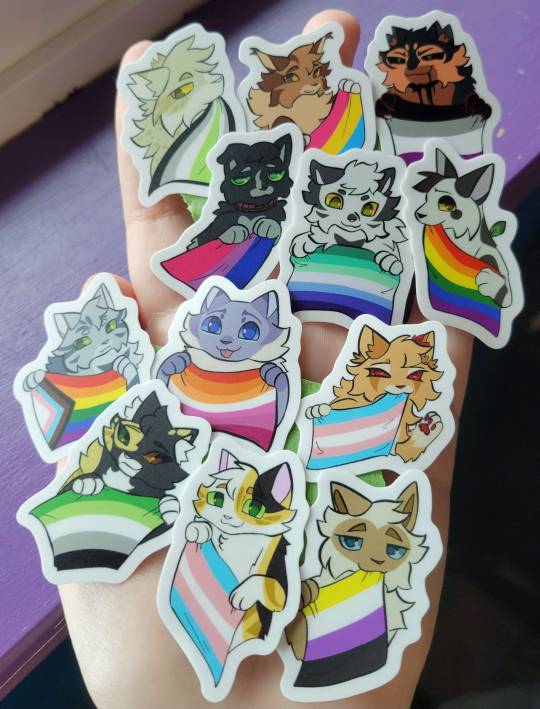
they're on my etsy shop! as well as a couple other stickers, prints, and some pins being listed as well
https://www.etsy.com/listing/1709524666/pride-stickers-the-exiled-cats
it's also been a minute since i mentioned the patreon, which is currently up to page 618 if you ever wanted to read ahead for just $5! i also send stickers and prints in the mail every month to the foxclub tier
https://www.patreon.com/the_exiled
any support means the world to me!
152 notes
·
View notes
Text

this passage is so genuinely funny, i too would be so confused as to how this twelve-year-old knows what pronouns are but not the concept of gender
#and then berwyck just drops that crazy ass line out of nowhere LMAO#anyways erm pretend i posted this back during pride month when i was still rereading this book lol. i'm on exile now#tyto posts#guardians of gahoole#guardians of ga'hoole
210 notes
·
View notes
Text
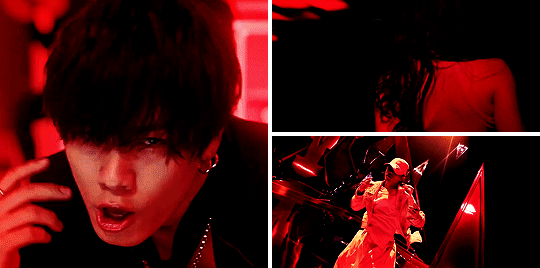

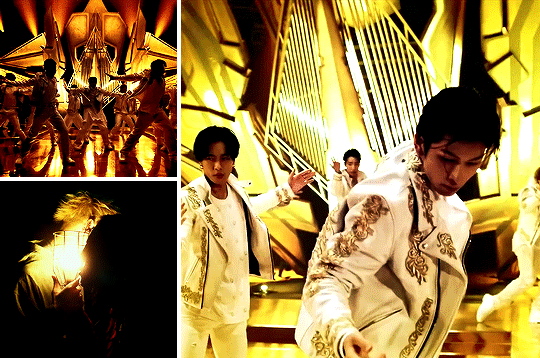
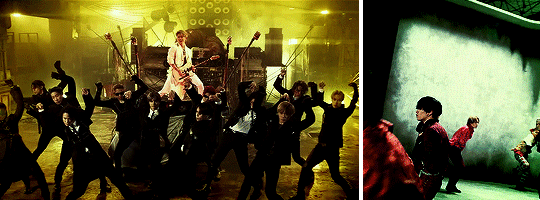
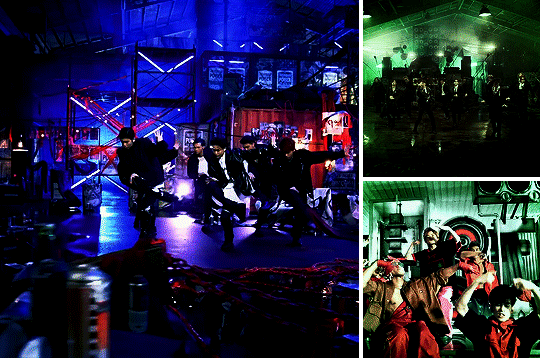

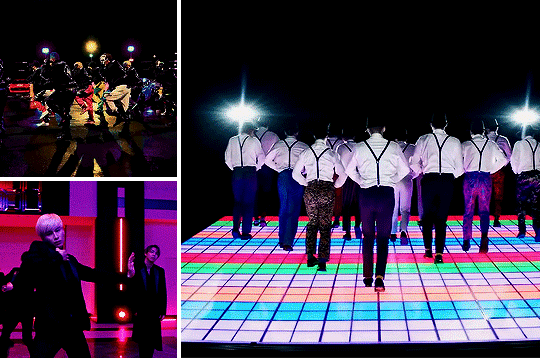
THE MANY COLORS OF THE RAMPAGE FROM EXILE TRIBE
#thank you to chaska and mare for helping me find scenes#and happy pride to my fellow ravers#the rampage from exile tribe#*mine#userchaska#usermare#jpopnetedit#jpopedit
68 notes
·
View notes
Text
There’s an interesting parallel between Arjuna and Ekalavya that comes up towards the end of the Mahabharata. At the beginning, Ekalavya suffers a hand injury to secure Arjuna’s destiny as “the best archer.” But once Arjuna has fulfilled his major purpose in the world and larger story/Krishna leela, he too suffers a hand injury, marking the beginning of the end of his status as “the best archer” and the loss of all his famed combat ability.
During ashwamedha after the war, Arjuna follows the sacrificial horse and fights the rulers of the kingdoms it enters. Right at the beginning, an arrow pierces his hand as he’s fighting the Trigartas, and he drops his bow Gandiva for what I think is the first time ever.
This is the point at which Arjuna, like Ekalavya after cutting off his thumb, is never as good as he once was.
While he’s fighting the Saindhavas, he’s overcome by their arrows to the point where he actually freezes, becomes confused, and drops Gandiva again. It’s only the prayers of rishis that give him the power to collect himself again and fight again. Later in Manipur, he takes a very painful shot from his son that penetrates his shoulder, and then takes an arrow to the chest that pierces his armor and actually kills him. Arjuna only survives because he’s revived through the power of his naga wife Ulupi.
Arjuna would have lost the first encounter were it not for outside intervention and he literally dies in the second, again only coming back because of outside intervention. His skill is fading, but he still has to watch the sacrificial horse, so powers outside of himself (the rishis and Ulupi) step in to ensure that he can do this.
Once the sacrifice is complete and after Krishna has departed this world, that’s when Arjuna is truly no longer needed. In a massive contrast to the caliber of warrior he used to be—what his entire identity is predicated on—he’s now completely unable to protect the women of Krishna’s decimated clan as they travel away from Dwarka. He can barely lift Gandiva anymore, all its inexhaustible arrows are gone, and he’s unable to do anything effectual as bandits attack them, kidnapping women and stealing supplies.
It’s like the story is telling Arjuna—and us—that his skill is no longer needed anymore; his part to play in life as a fighter is finished. But that might be hard for Arjuna to accept; after all, he still carries the now useless Gandiva around until Agni himself appears and tells him to return it.
#I know about the curse from how Arjuna killed Bhishma and why he had to 'die'#but the fact that the death happens NOW after the war is significant#I've also never had this much sympathy for Arjuna#not even while the Pandavas were in exile did I feel so badly for him#He still had a purpose then and all of his skill as a warrior#Now? Now he's lost everything that made him *Arjuna*#and we know that his big thing was his pride in his abilities#Honestly it's no surprise that Arjuna agrees immediately when Yudhishthira says that it's time for them to go to the Himalayas....#I think Yudhishthira speaks for all of them when he makes this decision#like they've all been thinking it and know it's time#I think it's also important that this is one big decision that Yudhishthira makes by himself without outside advice/opinions#This originates entirely within himself and he finally trusts his own judgement at the end of his life.#Mahabharat#Mahabharata#Arjun#Arjuna#Ekalavya#mythology
92 notes
·
View notes
Text
If anyone wants a pride icon for feline ocs lmk I’m on the grind :)
Showing some examples with my beloveds from The Exiled, Talon and Clover 🧡🧡🧡
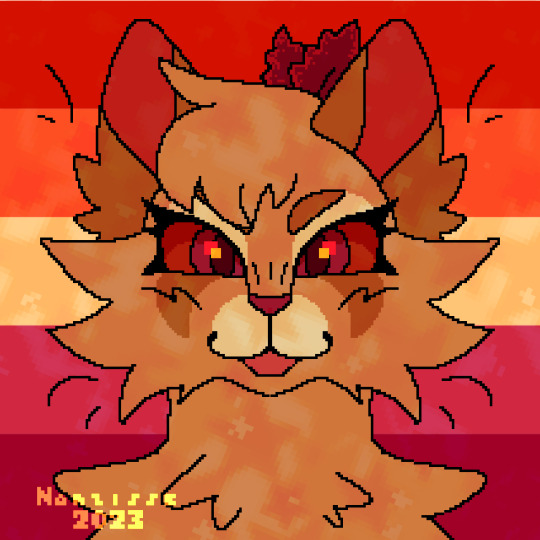
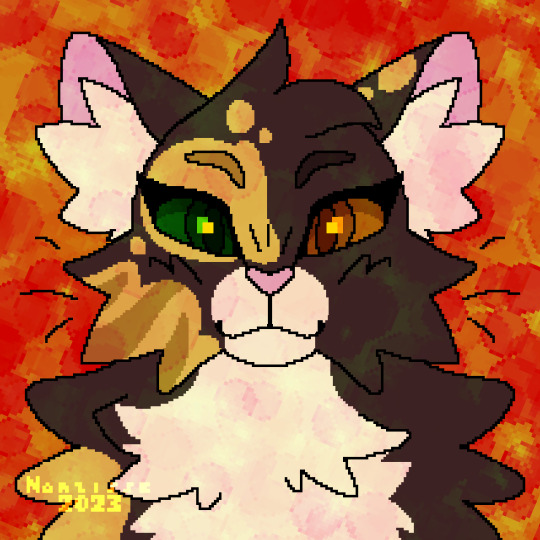
Characters by @the-exiled-comic of course :)
44 notes
·
View notes
Text
Another Morwen ramble…more in my houseless for exiles tag
I just wanted to say I think so much about Morwen’s bitterness and grief with regards to her finally leaving Hithlum.
She’s not prospering in Hithlum obviously. She’s been persecuted as a witch when she’s never felt more powerless. She is forced to receive food from sources originally stolen from her and her husband’s people by her friend who is beaten for helping her. She and her daughter are often starving and, even though she works tirelessly, we know the house itself is falling apart
But it’s also her home, she doesn’t want to be driven out and more than that, it’s the home she’s fought tooth and nail to make for herself since she came to Hithlum as a refugee. I do not think that settling there was easy for her. At the time of Húrin leaving for the Nírnaeth, she has worked over a decade to make this her home in whatever ways she can (and I think it never on all levels feels like her true home not least because she is always always acutely aware of how quickly things can change)
And of course she doesn’t want to accept Melian and Thingol’s help more than she has. We know it was already difficult for her to ask for protection for her son from them. She did not wish to be the guest of anyone, especially when being a guest meant being completely reliant on her hosts for food, clothing and other goods and needs as well as nearly shelter
I know I’ve rambled about this a lot but this enmeshing of Morwen’s pride and trauma is just so so fascinating to me especially with how it connects with her sense of culture and belonging and how it makes her both never feel completely at home in Hithlum or among Húrin’s people but also unwilling to leave. Morwen’s pride is so much more than how she appears to others or speaks to them or doesn’t though again it is also that. It’s interwoven with her knowledge that she is among the last of her people and all of her grief and exile
Morwen is never explicitly described as self-sufficient, but I think it can be inferred from how she works tirelessly to keep the house in order after Húrin leaves and how she survives for so long in the wild after the attack by Glaurung. She does not like to be reliant on others. I always read this as something very visceral. It’s not only that it nettles her pride, though it very much does do that, but it evokes a profound sense of unease and discomfort.
Moreover, so she was willing that her son should be fostered in the holes of another after the manner of a time she would not humble her pride to be an alms guest, not even of a king
This echoes the words of the previous page; alms were bitter to Morwen but she took this aid for the sake of Túrin and her unborn child, and because as she said it came of her own 
Morwen is willing, though displeased, to accept help for the sake of her children but not strictly herself.
I imagine that when Morwen first came to Hithlum she was indeed treated as an alms guest, for better and for worse. Perhaps even now she is viewed that way by those who still see her as an outsider and she is acutely aware of this.
(I know I’ve mentioned this on previous posts and got into my reasoning then, but I do not think that she felt accepted when she stayed in Brethil as a child and this weaves another thread, in tangling, her pride and grief, and trauma all relating to her feelings about being a guest and an outsider in places )
Anyways. I just love Morwen so much. I have a follow up to this about how textual descriptions of her pride mirror textual descriptions of her grief.
#the silmarillion#the children of húrin#morwen#houseless for exiles#musing and meta#also inthink about how one definition of pride is simply being aware of one’s dignity
16 notes
·
View notes
Text
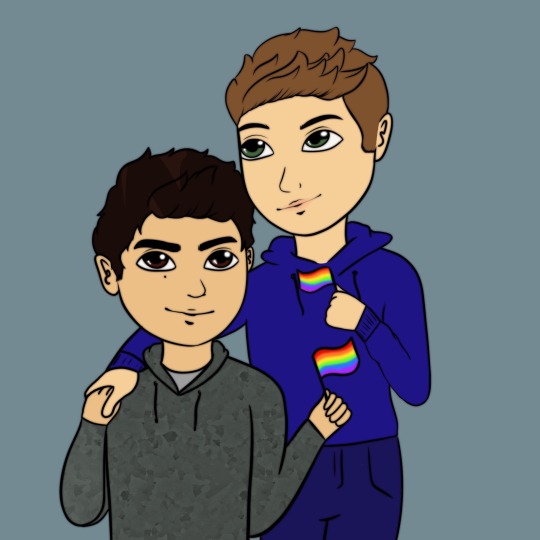
There has been a disappointing amount of homophobia this Pride month so I wanted to celebrate with the couple that made me want to curl up in a ball because I was so happy to be represented by Disney Channel of all places
Forever thank you Joshua Rush, Luke Mullen and of course Terri Minski ❤️🌈
#andi mack#cyrus goodman#tj kippen#joshua rush#luke mullen#terri minski#lgbtqia#pride month#In the spirit of Pride this is Paracosmicfawn’s GF posting for them#They exiled themselves so they would avoid Miraculous spoilers#But still wanted to bless the world with their talent 💜#my posts#paracosmic art
25 notes
·
View notes
Note
We have only just been given a headshot of Juneberry and I love her already
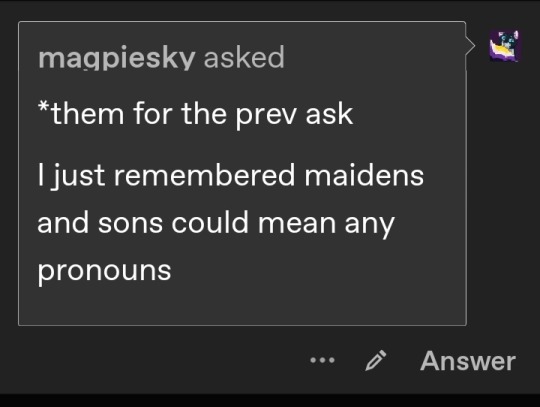
He's just a sweet, lonely guy who gets bullied sometimes (his sister, Lilac, sticks up for him)
#he's gonna get some healer training later#his position in the pride is weird tho cus his mother is an outsider#qnd his father was a coalition tom#and he was born while the coalitions were away and then his father brought him and lilac to goldspring#and goldspring couldnt really decide if it was unlawful or not so they kept him and lilac and exiled their father#its a little tragic u.u#coev: juneberry
8 notes
·
View notes
Note
Could I perchance get a genderqueer flag picked from any panel with the exiles and/or a demiandrogyne flag picked from any panel with Jack Noir/SS or DD?
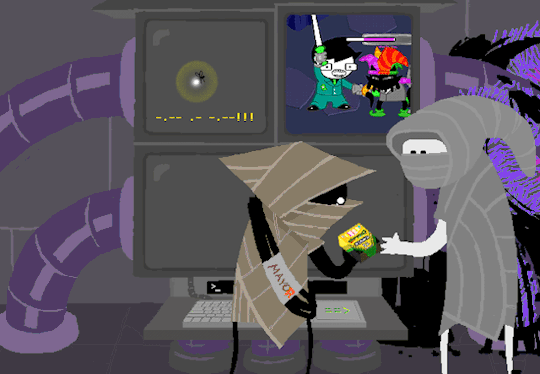
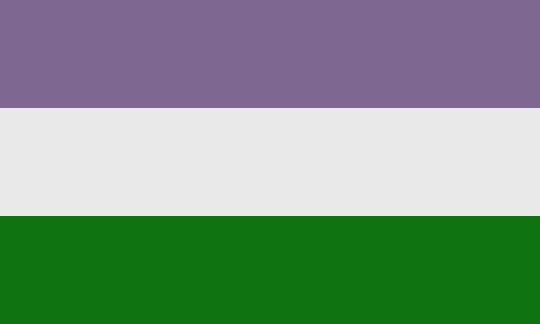
Yeah of course. Here's a genderqueer exiles flag,
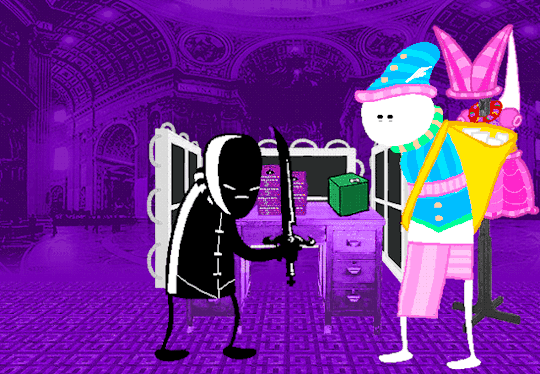
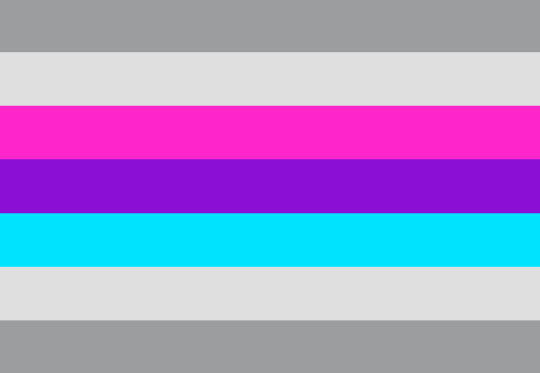
demiandrogyne Jack Noir,
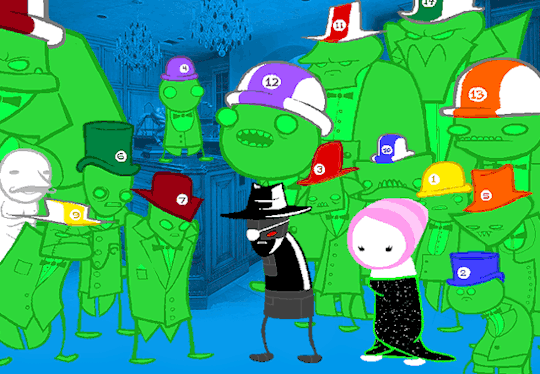
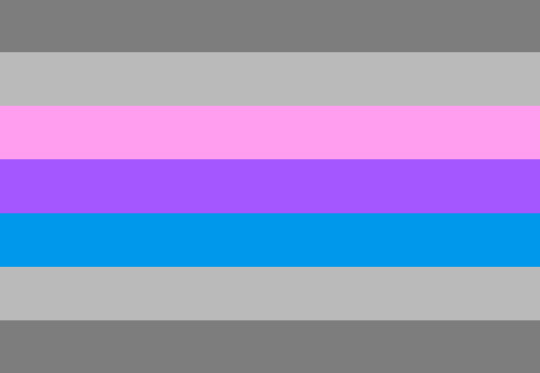
demiandrogyne Spades Slick,
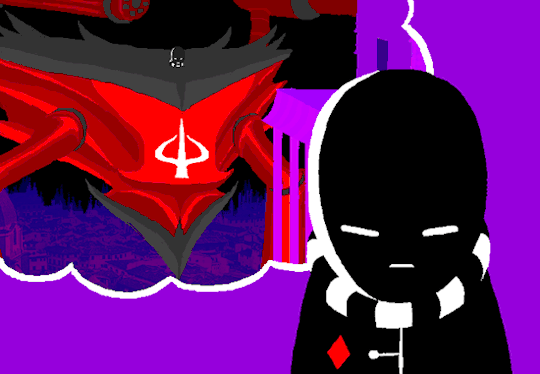
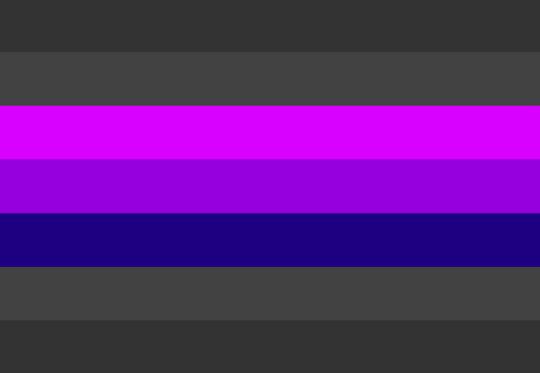
and demiandrogyne Diamonds Droog.
#homestuck#the exiles#wayward vagabond#peregrine mendicant#jack noir#spades slick#genderqueer#demiandrogryne#pride#ask#anon#mod shane
24 notes
·
View notes